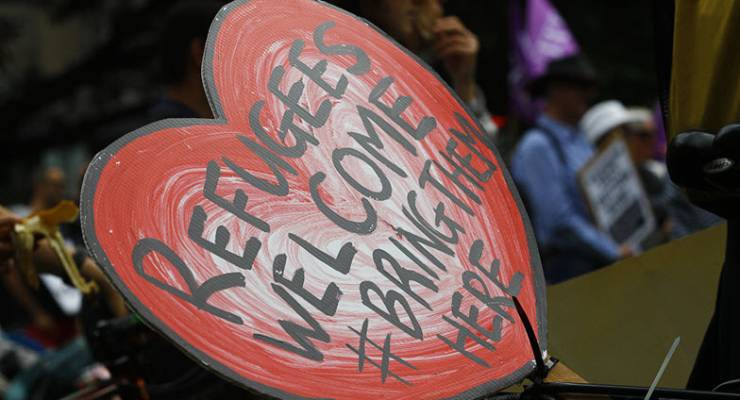
Yesterday Crikey readers weighed in on the heated topic of the recently passed refugee medivac legislation, which Bernard Keane noted yesterday was not a topic that the vast majority of voters cared much for. Unsurprisingly, this was a divisive stance, and readers made sure their voices were heard. Elsewhere, readers responded to economist Paul Krugman’s take on the trials and tribulations of global trade (as recorded by Jason Murphy), and the ongoing saga of mismanagement of Australia’s river systems (as told by Guy Rundle).
On voters and refugees
Jenifer Nicholls writes: If refugees are not an election decider, they should be. There are two separate bundles of issues that concern people: the everyday sorts of things we expect governments to manage, like health and housing and education and infrastructure; and then the more abstract “things that matter” to us personally, like values and principles and ideals. From this perspective, we’re at the stage where some of the second group (treatment of refugees and action on climate change being the most notable) have made the transition into the first group. It’s too simplistic to say that these are only issues of the left. The flow-on from the Wentworth result and the rise of independents show how far things can move.
Bryan Francis writes: Government efforts to spin and distort the impact of the medivac legislation is a measure of their desperation. Their frenzied efforts to find a “Protect Our Borders” issue to run on in the coming election is well illustrated by the performance of Christopher Pyne on Insiders and Peter Dutton on the 7.30. At times both ministers were shrill and bordering on hysterical.
Deb Campbell writes: Bernard’s comment — “Look at the US if you want to see what happens when progressive parties obsess about fringe social issues rather than focusing on delivering for working people” — worries me. I think these comparisons with US and UK populism are overblown for one simple reason: in the UK and US only the political extremes tend to vote with any regularity, while the vast middle ground often does not.
Thankfully we Australians have not (yet) devolved into those polarised extremes because we pretty much all vote — even when we don’t have to, as we saw on the marriage plebiscite. This seems to me to have meant, to date at least, that the middle holds sway, and it may be that now, finally, that middle has had enough of watching all that recurring brutality, malicious negligence and incompetence. I think that is the gamble Bill Shorten is taking and I hope it pays off for him.
On world trade
Geoff Edwards writes: Paul Krugman’s admission that the trade policy elite failed to anticipate the distress that free trade would cause to pockets in developing countries is welcome, but it should be added that this outcome was predictable and predicted by heterodox economists and a small band of progressive community activists. The failure of the trade elite to heed the warnings has led to a mind-numbingly complex trade environment, unpayable debts and loss of capacity in trade-deficit localities that can probably only be unwound by massive pain in both developed and developing countries alike.
On the fate of the Murray-Darling
Rosemary Jacob writes: Australia has failed to recognise that translating European farming to the driest continent on earth is guaranteed to fail and using the land to create profit hastens the process. Governments involved have behaved abominably and politicians such as Barnaby Joyce should be sued by communities which are now denied clean water.
Send your comments, corrections, clarifications and cock-ups to boss@crikey.com.au. We reserve the right to edit comments for length and clarity. Please include your full name if you would like to be considered for publication.







I wait for the retrospective criminal laws for climate change denialists.
The Fate of the Murray-Darling: Much as I loathe Barnaby Joyce it isn’t all his fault that these rivers have had the guts ripped out of them. Thirty-forty years ago there was a lot of ugly publicity as to what would happen if cotton and/or rice was to be grown in this, one of the driest continents on the planet. Scientists gave their views-negative-and the electorate was concerned.
Time passed, the big water-hungry crops, I think tobacco was also grown, but I’m not sure, were planted and the locals loved it. Now they get to see what happens when ultimate greed takes over. I’m sorry, but these bastards hasve earned their misery.
Yes, but it’s not only the cotton- and rice- farming locals who suffer from this policy. It’s everyone downstream, and really, all of us.